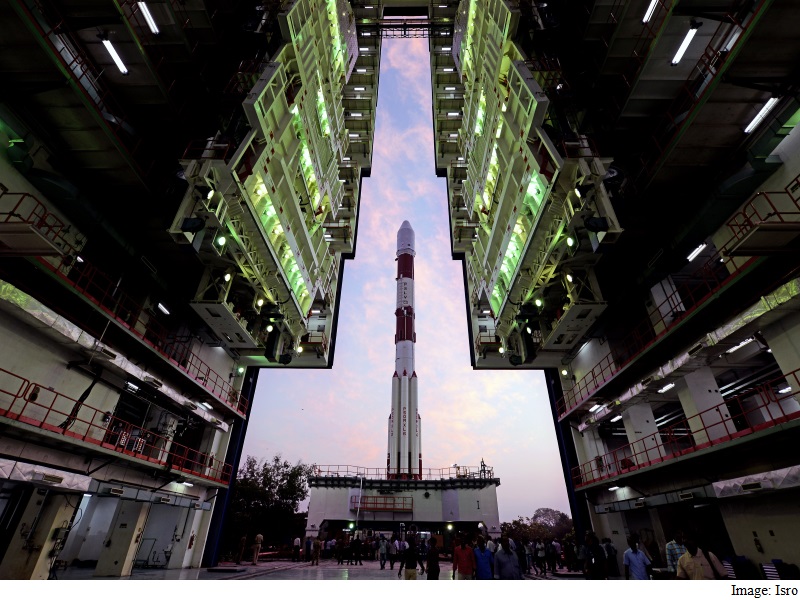Isro to Launch Seventh and Final IRNSS Navigation Satellite on April 28
Advertisement

India is slated to put into orbit its seventh and final navigation satellite on April 28, thereby having its full satellite navigation system up in the sky, said a senior space agency official.
"The launch of India's seventh and the final in the series of satellites will be on April 28 afternoon. The IRNSS-1G (Indian Regional Navigation Satellite System-1G) will be put into orbit by our rocket Polar Satellite Launch Vehicle (PSLV)," K.Sivan, director, Vikram Sarabhai Space Centre of the Indian Space Research Organisation (Isro), told IANS over phone on Tuesday.
The PSLV rocket will blast off after 12 noon on April 28 from India's spaceport at Sriharikota in Andhra Pradesh, around 80km from in Chennai.
Till date, India has launched six regional navigational satellites (IRNSS-1A, 1B, 1C, ID, 1E and 1F) as part of a constellation of seven satellites to provide accurate position information service to users across the country and the region, extending up to an area of 1,500km.
Though the full system comprises nine satellites - seven in orbit and two on the ground as stand-by, the navigation services could be made operational with four satellites, Isro officials had said earlier.
Advertisement
Each satellite costs about Rs. 150 crores while the PSLV-XL version rocket costs about Rs. 130 crores. The seven rockets would entail an outlay of about Rs. 910 crores.
The first satellite, IRNSS-1A, was launched in July 2013, the second in April 2014, the third on October 2014, the fourth in March 2015, and the fifth and sixth on January 20 and March 10 this year.
Advertisement
Once the regional navigation system is in place, India need not be dependent on other platforms.
The IRNSS is similar to the global positioning system (GPS) of the US (24 satellites), Glonass of Russia, and Galileo of Europe as well as China's Beidou.
Advertisement
While GPS and Glonass are fully functional global systems, the Chinese and the Japanese systems are offering regional coverage and Europe's Galileo is yet to be operational.
The IRNSS will provide two types of services - standard positioning service and restricted service. The former is provided to all users and the latter is an encrypted service for authorised users.
Meanwhile Isro is in the process of developing the front-end radio frequency chips for the satellite navigation system. The initial version is expected to be ready this year, Isro chairman A.S. Kiran Kumar told IANS earlier.
For the latest tech news and reviews, follow Gadgets 360 on X, Facebook, WhatsApp, Threads and Google News. For the latest videos on gadgets and tech, subscribe to our YouTube channel. If you want to know everything about top influencers, follow our in-house Who'sThat360 on Instagram and YouTube.
Advertisement
